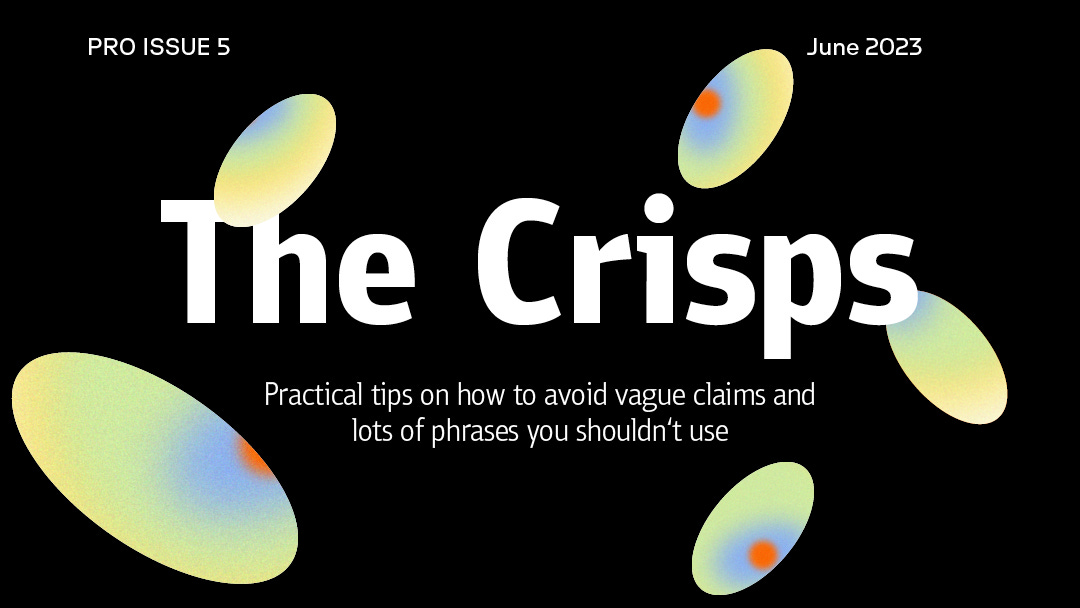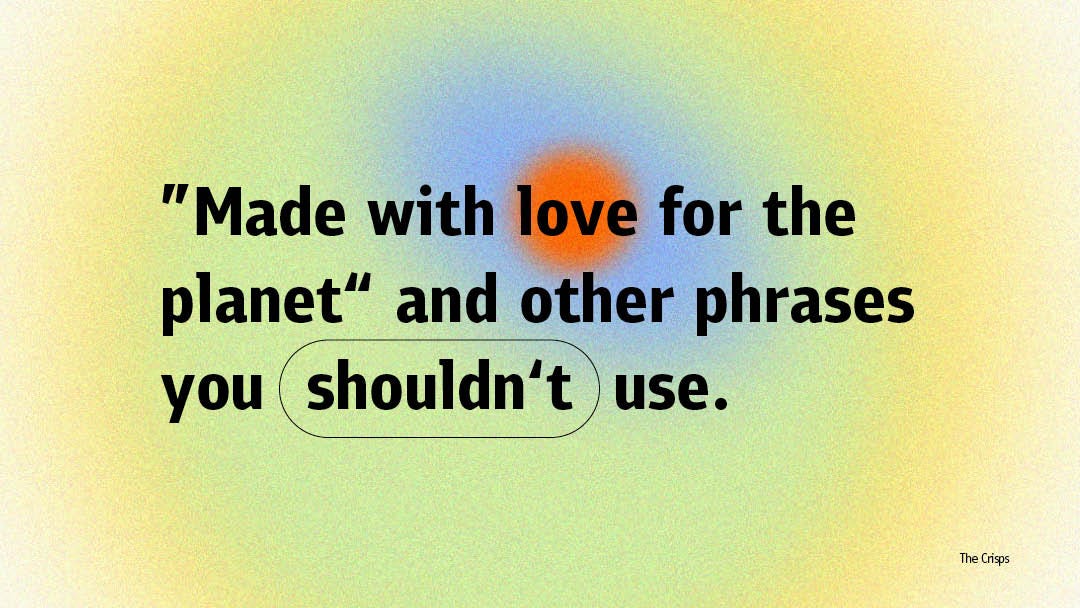"Made with love for the planet" and other phrases you shouldn't use
Plus practical tips on how to avoid vague claims
If you’ve read last week’s issue, you know the difference between irrelevant, vague and misleading claims. Today we’re diving deeper, giving you more examples and an overview of how to avoid vague claims altogether.
If you’re not a pro subscriber yet, here’s your chance to support our work and learn more about anti-greenwashing communication.
We’re starting with a bang today: All consumer products harm the environment. There’s no way around it. Sorry for bursting the bubbles. But when it comes to claims like “Our product doesn’t have an impact on the environment“, know that they are simply incorrect. All products leave some harmful traces.
What products can be: Designed to reduce their harmful impact. But the design, manufacturing and the use phase are different pairs of shoes. And while a product might be designed to reduce its impact, it doesn’t address the way the company works in general or how the product performs while in use.
When we look at the industry, the biggest change in business practices has been made in marketing and communication over the last years. But it isn’t a good kind of change. Because our misleading communication is tricking consumers into believing a product is good for the people and the planet. Hello, greenwashing!
As the entire mission of The Crisps is to stop this nonsense altogether, we’re giving you even more practical examples of vague, misleading and irrelevant claims. So we can all learn together and think of better ways to communicate collectively.
Keep reading with a 7-day free trial
Subscribe to The Crisps to keep reading this post and get 7 days of free access to the full post archives.




